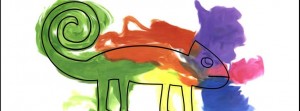I have been asked to speak about the future of learning in a few weeks.
Well over a decade ago I became fascinated by the work of the 21st Century Learning Initiative. Following this line of interest led me to the Harvard Graduate School of Education, eventually completing a Masters in Learning & Teaching there and then later working as a Fellow at several of their institutes last year. My views about the future of learning have been strongly influenced by the ideas emanating from HGSE, particularly from the Future of Learning Institute.
“When teachers embrace learning for the future, they nurture expert thinking, collaboration and entrepreneurship. They foster intercultural understanding, environmental stewardship and global citizenship. They invite students to understand complex problems, create quality work and express themselves through traditional and new media—ultimately preparing students to live ethical and reflective lives in rapidly changing environments.”
Howard Gardner talks about how today’s kids have less autonomy and are more risk-averse (whilst acknowledging that they are more connected and more tolerant than ever before). He speaks about nudging kids from dependence to enabling, suggesting that it’s all a question of agency. This leads him to conclusions about the value of direct instruction versus constructivism. For him there is no contest and he freely admits that he is rather taken with the concept of constructivism. He encourages us to allow kids to make mistakes and get lost sometimes. He referred to an interesting paper: The Double-Edged Sword of Pedagogy.
David Perkins speaks about the importance of wilding the tame and educating for the unknown. Instead of focusing on the achievement gap we should be focusing on the relevance gap. He insists that most of what we teach students in school is a waste of time and he calls for lifeworthy learning, and the development of flexpertise, acknowledging that we are moving from hierarchies of learning to a network structure.
“A huge information base may not be the right priority for our time”
“Our curricula are full of learning that doesn’t matter much”
“Our educational settings are often neat, organised, linear, predictable, structured. Life is often not”
The Future of Learning Institute is organised round three themes:
Mind/Brain
Neuroscientists stress the importance of multilingualism and teaching in multicultural classrooms in order to raise global learners for the future. Our brain is shaped by the environment we are born and raised in and we need to gain some distance.
“A fish doesn’t know what water is.” (Bruno della Chiesa)
They also caution us to watch the labelling. Educators have a mindset of trying to label rather than foster dynamic learning environments. Measuring intelligence in one way perpetuates the current social order and is a social time bomb.
Technology
Technology is often used in a boring fashion and reinforces outdated teaching methods. It is ‘old wine in new bottles’. Too often classroom technology looks like automated worksheets or digital lectures.
Teachers teach as they were taught and they need to be encouraged in different learning if we want them to teach differently. This requires unlearning the industrial model.
“We use weak forms of pedagogy with powerful technology and then wonder why the results are bad.” (Chris Dede)
“I see digital media as a Trojan mouse to open the door to conversations about pedagogy.” (Justin Reich)
“Most classroom instruction remains the I-Q-R model – we can do better.” (Justin Reich)
Globalisation
“Global competence is the capacity and disposition to understand and act on issues of global significance” (Veronica Boix-Mansilla & Tony Jackson)
We need to recognise perspectives: our own and others.
“Our geopolitical and intercultural misunderstandings are profound. Empathy is absent. Global citizenship is essential” (Jeffrey Sachs)
Conclusion
If we want to discuss the future of learning, let’s talk about great pedagogies like visible thinking, project-based learning, and scaling up approaches like group learning and documentation from Reggio Emilia.
While the focus of this post is on the future of learning as opposed to the future of schooling, I find the views of Yong Zhao, David Price, and Tony Wagner compelling, and I think that Hedley Beare’s 2001 seminal work on Creating the Future School remains highly prescient today.
